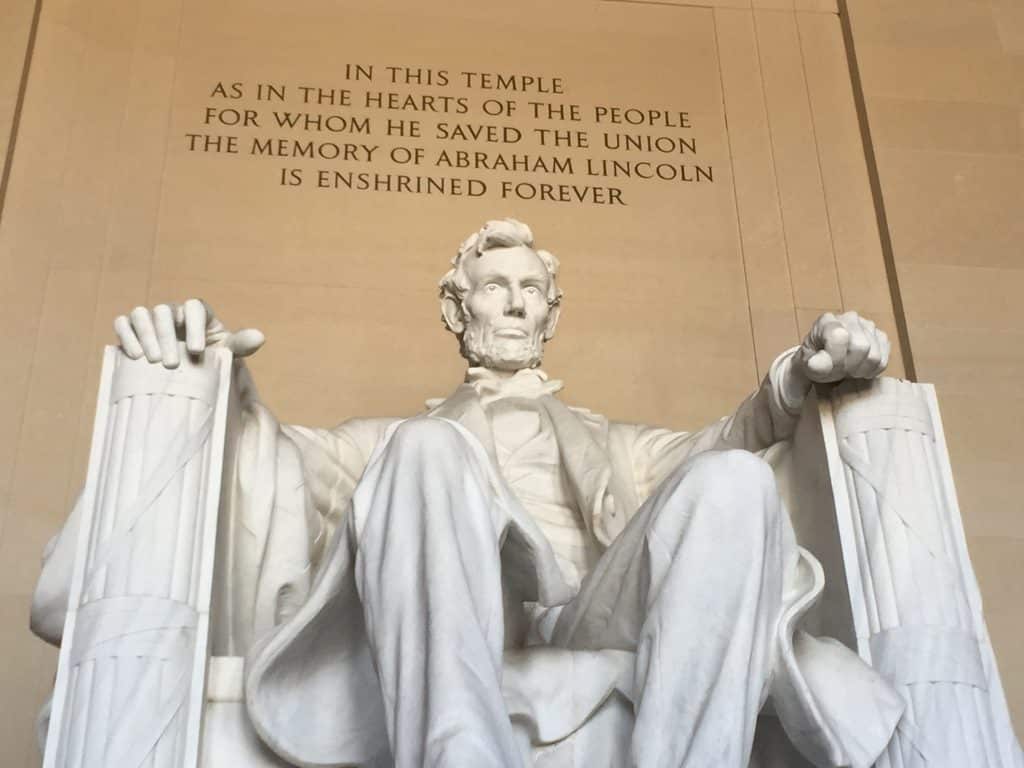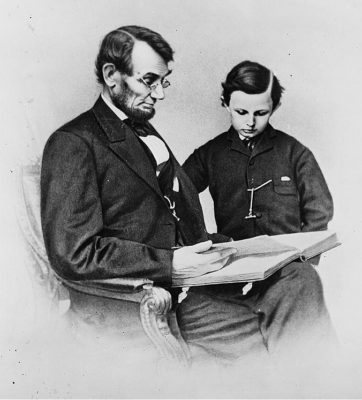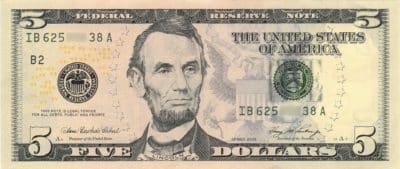Why President Lincoln matters

Holidays in America aren’t what they used to be. Gone, it seems, are days when they told stories about cherry trees, log cabins and a barefoot boy who walked for miles on a dirt road to hear a politician give a speech. Today, holidays are highly political, full of bitter accusations toward a nation that continues to fail in its quest for equality.
America is innocence lost. From the old America, Abraham Lincoln, who was born on Feb. 12, 1809, survives. The 16th president always lands on the top lists of greatest presidents. Most American presidents are forgotten. Others get their one line in history (Franklin Roosevelt: Won World War II, Ronald Reagan: Won the Cold War.) Lincoln gets not one, but two lines: Freed the slaves. Won the Civil War.
Lincoln stands apart. He is the major figure from the 18th and 19th centuries to have survived the culture war auto-de-fe of the past 40 years. In doing so, Lincoln gives Americans a connection to a lost civilization that they otherwise might not have. Other much-beloved icons have come in for a debunking. The Democratic Party, for instance, no longer holds Jefferson-Jackson Day dinners. Lincoln, too, has been targeted. A school for the man in Berkley, CA, was renamed. A Lincoln bust on Chicago’s West Side was vandalized. These are exceptions.

Lincoln was a man born to the breed. Asked about making a run in the 1860 election, the former congressman replied, “I have a taste for it.” Lincoln was born on a farm near Hodgenville, KY, just 124 miles from Fairview, the birthplace of his Civil War rival, Jefferson Davis. An attorney by training, Lincoln served a term in Congress from 1846-48 before his legendary U.S. Senate campaigns against Stephen Douglas. In the highly contentious 1860 race, Lincoln prevailed in a multi-party race with 40 percent of the vote.
If you think about Lincoln, think Henry Clay. Without Clay, no Lincoln. The latter adopted Clay’s positions on protectionism, relocation of the freedman and the spirit of compromise, at least when the war was over. After South Carolina seceded from the Union, mid-South governors urged the new president to avoid war at all costs. Lincoln truly believed that if the Deep South’s secession was successful, then the entire nation might fall apart, starting with California breaking from Washington. After the war, Lincoln pursued reconciliation. His second inaugural speech famously promised “charity for all.” On a visit to Richmond, Lincoln promised to “let ‘em up easy,” asking a band to strike up a rendition of “Dixie,” while confiding “I always liked that song.”
Lincoln’s elections were close calls. His successor, Andrew Johnson, believed he was carrying out Lincoln’s planned Reconstruction era policies. Would Lincoln, had he lived, have suffered Johnson’s fate? Radical Republicans at the time would not have cared for the let ‘em up easy approach, but as a successful war president, Lincoln would have had plenty of political capital.

Lincoln’s great skill was as a rhetorician. Then and now, political rhetoric was florid and long-winded. Lincoln’s great strength was brevity and clarity. His words could inspire young men to volunteer in a war that faced strong opposition throughout the United States. With the Gettysburg Address, Lincoln delivered the 272 words that singlehandedly changed American history. In the speech, which Lincoln considered a failure, he identified the Declaration of Independence and its equality clause as central to the nation’s governance. Prior to that, only the U.S. Constitution was considered the nation’s governing document. Lincoln turned that agreement on its head. It was not until after World War II that the revolution took off. Lincoln, by our standards, was hardly egalitarian. Or as J. Alfred Prufrock would put it: “That is not what I meant/Not what I meant at all.”
Top Accomplishments Of One Of The Greatest U.S. Presidents
Lincoln led a fascinating life, made vital decisions during his presidency and left behind an unparalleled legacy. Here are some of his top accomplishments:
8. Lincoln is the only U.S. President to have held a patent
Patent 6469 was awarded to Lincoln in 1849 for an inflation device that could help stuck ships get past obstacles.
7. Lincoln signed the first of the Homestead Acts
The Homestead Act of 1862 gave applicants, often poor, ownership of land at little or no cost. Freed slaves and women over the age of 21 were allowed to apply.
6. Lincoln established the U.S. Department of Agriculture
Lincoln established the department in 1862 and called it the “people’s department.” The USDA remains responsible for developing and executing federal laws related to farming, forestry, rural economic development and food.
5. Lincoln signed the Morril Land-Grant Act
In 1862, Lincoln signed the act into legislation, allowing for the creation of land-grant colleges which taught military tactics as well as engineering and agriculture. Many of these institutions remain in existence today.
4. Lincoln established progressive scale of income taxes
In 1862, Lincoln signed the Revenue Act of 1862 which established what later became the IRS and a progressive system for federal income tax, similar to what we have today.
3. Lincoln established the U.S. National Banking System
The National Banking Act provided a strong financial network for the country and established a national currency. The impact of this law can be seen today.
2. Lincoln issued the Emancipation Proclamation
In 1863, Lincoln issued the Emancipation Proclamation which started the procedure for freeing slaves in America. It was a precursor to the Thirteenth Amendment, which made slavery and indentured servitude illegal, except as punishment for a crime.
1. Lincoln led the union to victory in the Civil War
Lincoln fought to preserve the Union and saw it through to Confederate General Robert E. Lee’s surrender in 1865. Six days later Lincoln was assassinated.
List adapted from learnodo-newtonic.com.



















